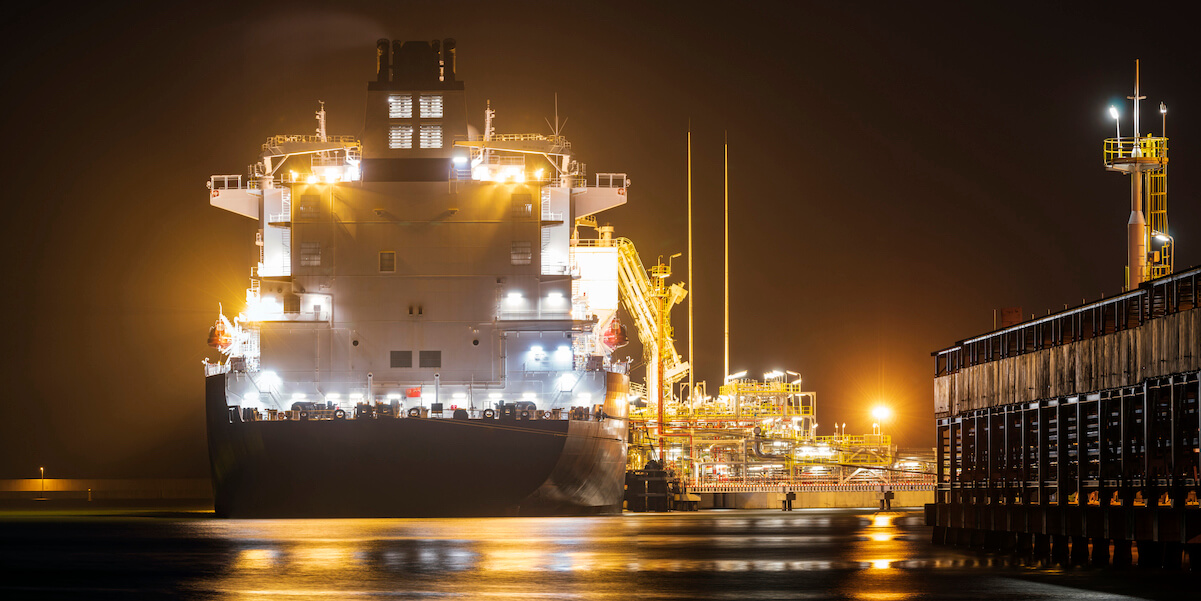
The past year has seen a great deal of instability in the global energy market, which was somewhat alleviated by the warmer-than-usual winter in Europe. However, the outlook for the upcoming winter is uncertain. In a paper published in Nature Sustainability, a research team from the University of Louvain, the University of Southern California (USC) Viterbi School of Engineering, and the Qatar Environment and Energy Research Institute has determined a “high vulnerability zone” in which an oil spill could lead to the temporary closure of liquefied natural gas export facilities and desalination plants on the coast. Such a shut down would have a major impact on the global gas supply and result in a water shortage for the denizens of the Qatari Peninsula, while simultaneously hampering containment efforts. Notably, roughly 20% of the world’s liquefied natural gas exports come from a single port in Qatar.
It is of paramount importance for researchers to recognize the potential risks associated with Qatar’s export capacity, which is projected to grow by about 64% in the next five years. This vital port is going to remain a central hub in the global energy supply chain. Additionally, the researchers point out that the rising number of tanker accidents in the Gulf are a source of anxiety, especially with regards to their potential consequences on essential coastal infrastructures, which export a key energy source for the world and guarantee the security of desalinated water in one of the driest climates on the planet.
- Advertisement -
The paper uses advanced numerical modeling to corollate maritime data transports, atmospheric circulation, ocean currents, waves, and seafloor topographic map data acquired over a period of five years to locate specific, offshore areas of the Qatar Peninsula that are vulnerable to oil spills and assess potential disruptions to the global supply of liquid natural gas.
The study suggests that tankers crossing this area are the principal risks for oil spills and, not the numerous oil rigs in the northern part of the Peninsula. Should there be a spill in this area, the researchers contend, Qatar would have only a few days to contain the oil spills before such spills would reach the country’s main liquified gas export facility and main desalination plant. The authors indicate that these events could potentially cause disruptions or even a total shutdown for day for the desalination plants, pushing the nation to rely on its small freshwater reserve and sending liquified natural gas prices to higher values.
To put the size of the issue in context, experts believe that the largest liquid natural gas tankers from Qatar provide enough energy to heat the entire city of London for one week.
The study advocates for increased remote sensing using satellite and airborne images in the Gulf’s most vulnerable areas to provide early warning for spills and better model their evolution. The above actions are crucial, say the researchers, to guide mitigation efforts to avoid negative consequences both locally and globally.
- Advertisement -
Co-author Essam Heggy of the USC Arid Climate and Water Research Center argues that the Middle East’s vulnerability to environmental and climatic hazards is largely underestimated. “Global containment of major oil spills has always been challenging, but it is even harder in the shallow water of the Gulf where any intervention has to account for the complex circulation currents, a harsh operational environment, and the presence of highly-sensitive ecosystems on which three million humans rely for drinking water.” He added, “I hope serious resources are put into resolving this vulnerability.”
Co-author Emmanuel Hanert of the University of Louvain stated, “Oil spill vulnerability in the Gulf could exacerbate both the global energy crisis and the local water crisis in Gulf countries.” He added, “Energy and water security are deeply intertwined, and both are at risk of being disrupted by a major oil spill. We identified sea areas in the Gulf where an oil spill would be the most dangerous to desalination and liquified natural gas export facilities. Satellite surveillance should focus on detecting oil spills as early as possible and hence limit their impact.”
Published on January 24th, 2023
Last updated on January 24th, 2023
- Advertisement -
This content should not be accepted as official medical, legal or professional advice.










